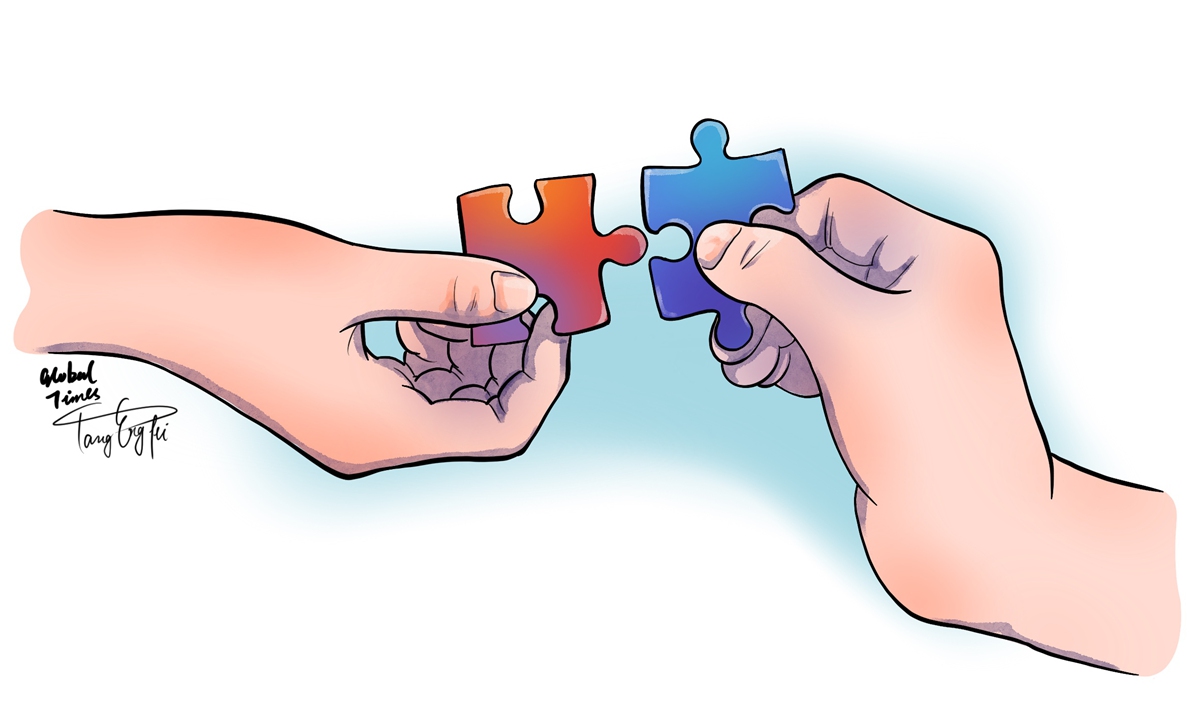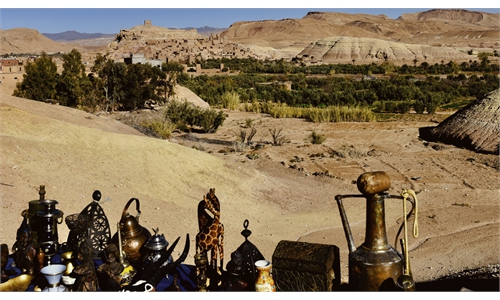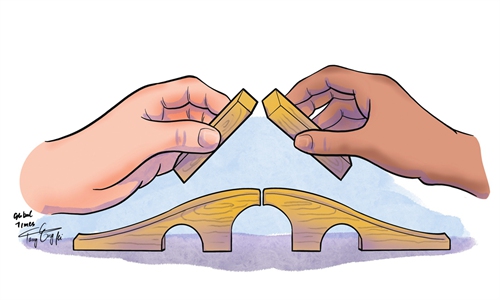China-EU business competition does not exclude possibility of cooperation in Africa

Illustration:Tang Tengfei/GT
The leaders of the EU and the African Union (AU) will meet for the sixth European Union - African Union summit in Brussels on Thursday and Friday. The summit is ambitious and covers sectors such as climate change, growth financing, migration, peace and education. More investment schemes will be revealed during the summit.Africa is critically important for Europe due to geographical and historical reasons. Developments in this continent are capturing the attention of the EU, which views its expanding international role as catalytic for securing stability and fostering prosperity.
The EU values stability in Africa. From a European perspective, instability in Africa (in North Africa and Sub-Saharan Africa) can be exported toward the Mediterranean posing serious problems, including terrorism. Additionally, Europe is seeking to prevent new waves of refugees, although it is characterized by an ageing population, while that of Africa is younger and more dynamic. Furthermore, the EU is interested in importing more liquefied natural gas (LNG) from African countries such as Nigeria, an issue which has been prioritized in recent weeks due to the Russia-Ukraine tensions.
Prior to the meeting, the EU revealed a 150-billion euro investment package for Africa, which is the first investment plan under its Global Gateway scheme. Investments will focus on objectives based on the green transition. There will also be support for sustainable agri-food systems. Efforts will also focus on sustainable growth and job creation.
China has been certainly a critical player in Africa. According to a report by the Center for Global Development, China tops the foreign financing for basic infrastructure in Africa. Its two main overseas development banks invested $23 billion in infrastructure projects on the continent, more than the other top eight lenders combined, including the World Bank, African Development Bank, and US and European development banks.
Business competition between China and the EU is not new and will perhaps intensify in a changing world. Such competition, however, does not exclude the possibility of some partnerships. Dialogue is essential. The Joint Statement of the 20th China-EU Summit (2018) mentions that the two sides would strengthen exchanges on Africa. They both agree on the importance of eradicating poverty and support the African Union's Agenda 2063. Thus, the Europe's Global Gateway can complement the China-proposed Belt and Road Initiative, notwithstanding clashing business interests. While the Global Gateway, which EU claims representing its contribution to narrowing global investment gap, focuses more on mobilizing capital, the Belt and Road Initiative can immediately lead to the flow of capital.
Cooperation is possible. For example, global players, including China and the EU, created a debt service suspension initiative to temporarily assist poor countries. The COVID-19 pandemic has also demonstrated that problems are transnational. China and the EU, for instance, are collaborating in providing vaccines to the developing world (including in Africa) through COVAX.
Synergies can be cemented in other sectors. Multilateral initiatives and peacekeeping operations under the UN umbrella are valuable, where the EU and China can also cooperate.
It is of vital importance to ensure that business competition would not take a confrontational dimension but would meet prosperity expectations of African citizens themselves. The contribution of both toward this end remains the desired goal.
The author is a lecturer at the European Institute in Nice, France. opinion@globaltimes.com.cn


